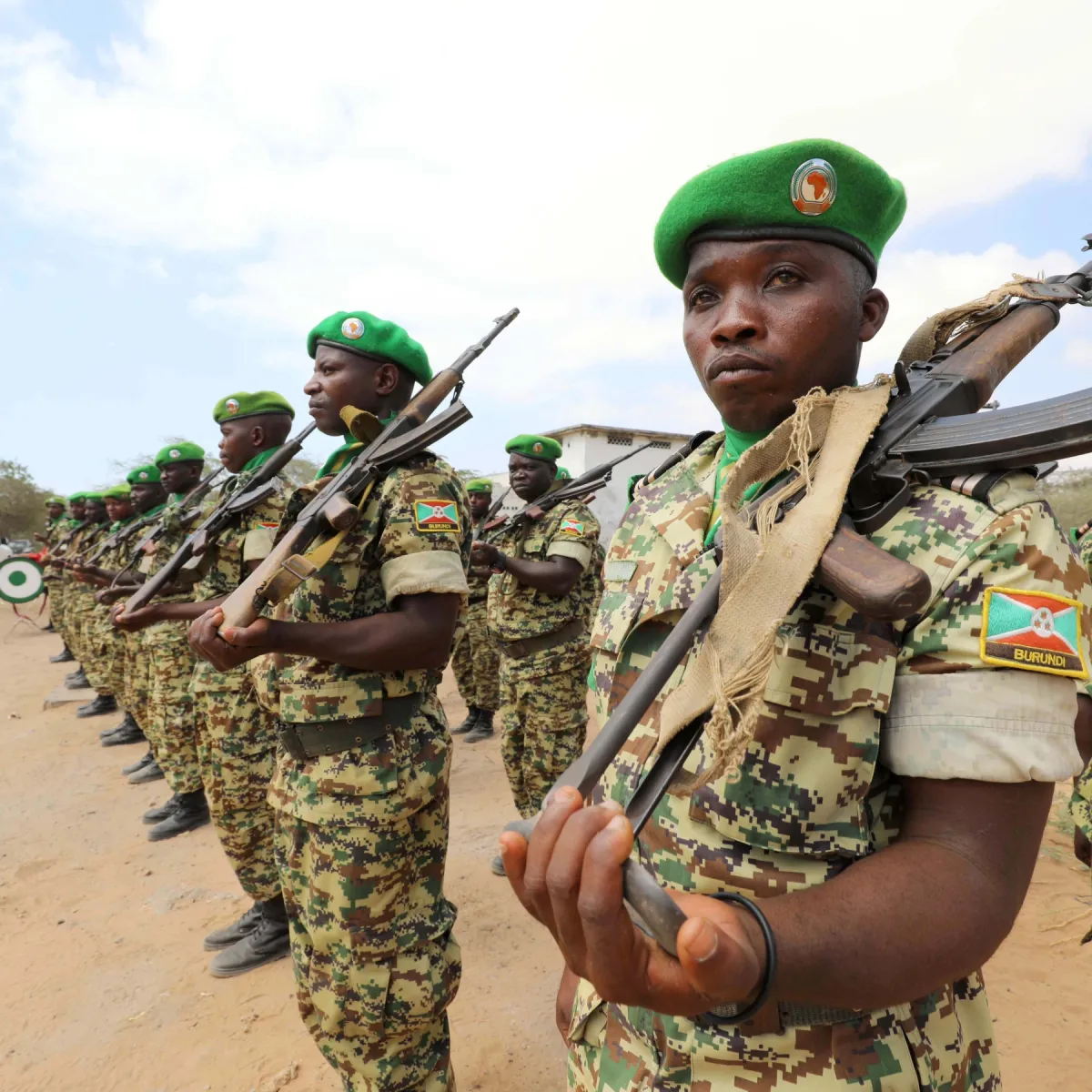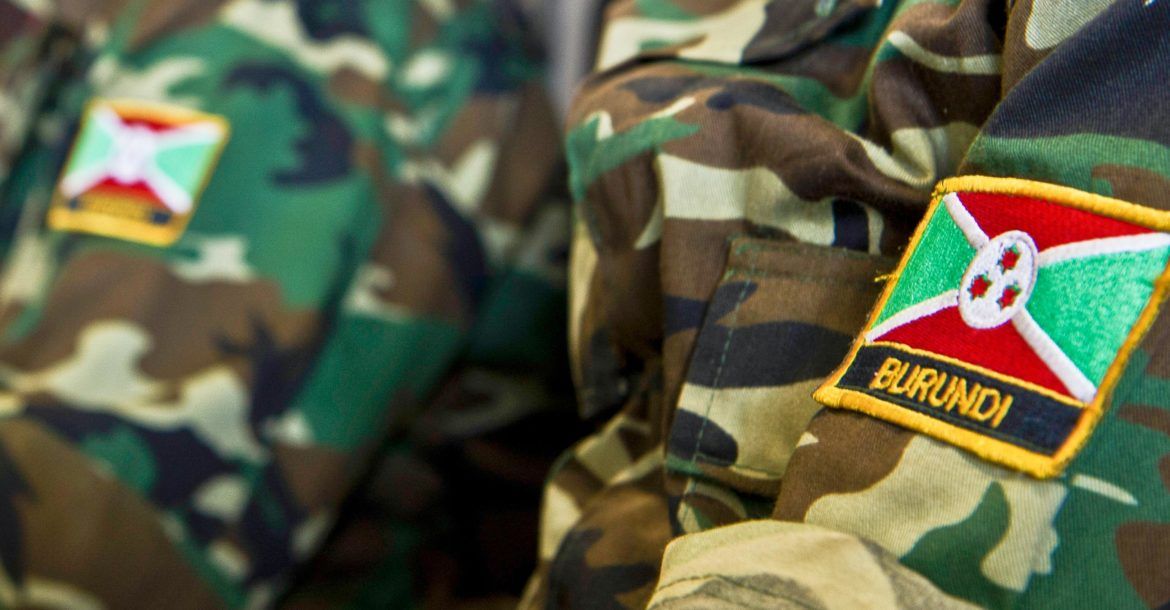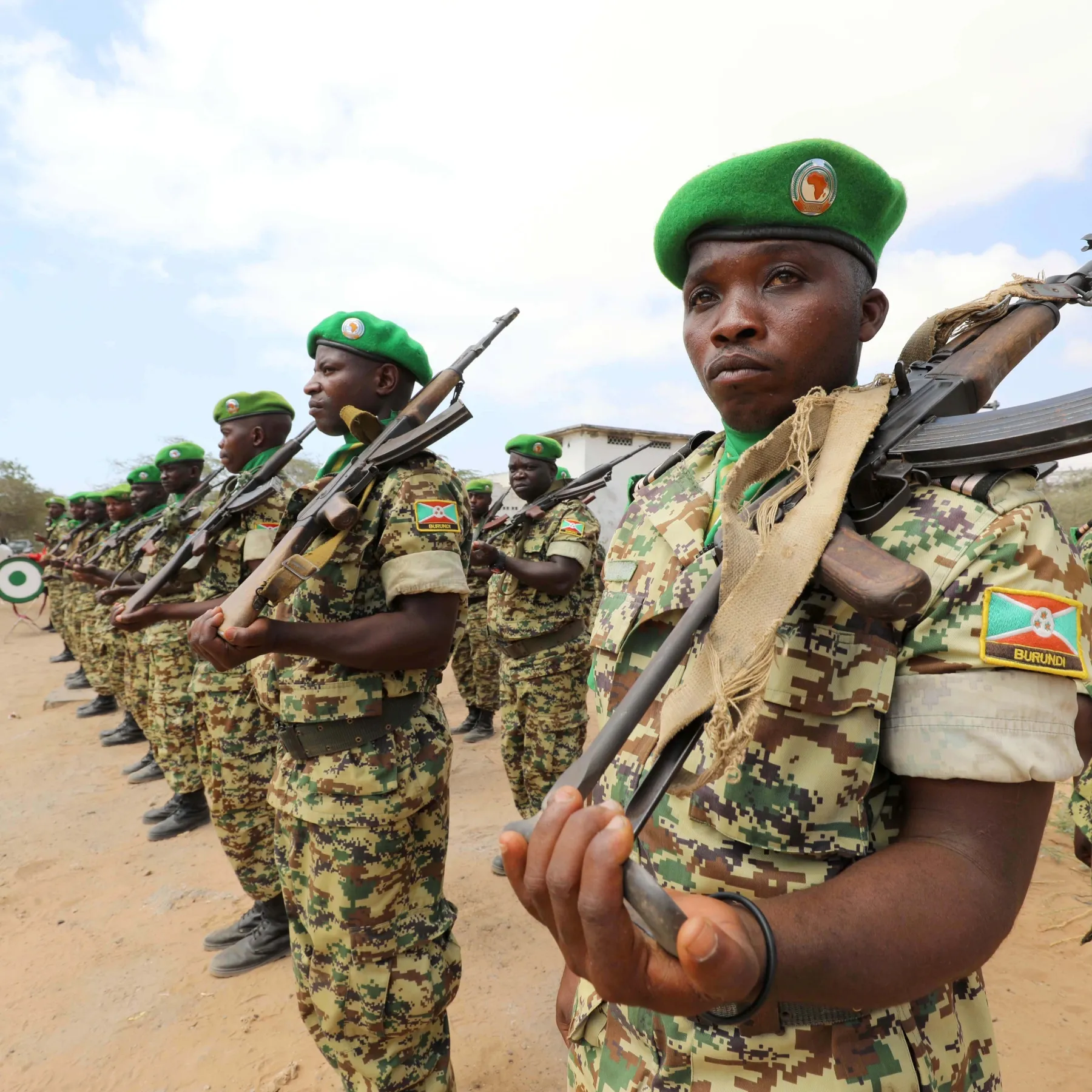Burundian troops in Masisi: throwing fuel on the fire?


The chaos in and around Goma is growing by the day: the M23 rebels are surrounding the town and the Congolese army and its proxy FDLR-, mercenary-, and Mayi Mayi forces prove to be no match for them. Several peace efforts failed for the main reason that the Congolese government refuses to negotiate directly with the M23 and keeps on accusing Rwanda for aggressing their country. Tomorrow the M23 are supposed to withdraw from their positions if the last peace effort wants to become a success. But nobody believes that: the rebels claim that there can be no deal without direct negotiations, a total disarmament of the FDLR and a complete stop of FARDC provocations. The ongoing peace efforts are also full of contradictions: the East African Community decided to send troops to the region to monitor the situation and to control the areas that the M23 is supposed to vacate. President Tshisekedi tried to lure them in the fight against the M23 but he didn’t succeed. As he tried before with the UN troops on the spot. This resulted in protests in the streets of Goma against the East African Force. And according to several Congo watchers the choice of the EA troops that are supposed to be posted in the region is not the best one either: they intend to send the Burundian army (FNB) into Masisi, the heartland of the M23 rebellion. The FNB has a very bad reputation: they performed poorly in Somalia and in the Central African Republic, they consist of a large number of Imbonerakure (extremist Hutu militia in Burundi) and their generals are known to have excellent contacts with the different FDLR groups that are active in the region. Everybody knows this but this argument has not been put on the table yet. According to many the presence of these troops can become another factor of instability.
Track Record
The track record of the Burundian president Evariste Ndayishimye is relatively poor: his predecessor Pierre Nkurunziza was one of the architects of a special construction to lure Rwanda into an open war with Burundi. With the support of other Hutu hardliners such as Eugene Serafuly in the DRC, Philemon Mateke in Uganda and several anti-Kigali rebel groups he allowed those to infiltrate Rwanda via the Nyungwe forest. Paul Rusesebagina’s (the Hotel Rwanda Hollywood hero) FNL-rebel group was set up to stick a name and a face on that construction. Rusesebagina’s men were stopped in the Nyungwe forest, the Rwandan army refrained from going after the bait to follow them into Burundi, Rusesebagina was arrested and is now serving a jail sentence and the FDLR-soldiers who had joined his group where largely wiped out by the RDF (Rwandan army). Most of the FDLR fighters had previously fought in the DRC under the banner of Wilson Irategeka, a relatively moderate FDLR commander.
When Evariste Ndayishimwe took over from Nkurunziza he changed a couple of hardline collaborators but in reality he was unable to turn the odds for his country: he might have understood that an open confrontation with Rwanda could be the beginning of the end for his clique but he did nothing to prevent the ongoing corruption and the crimes of the extremist Imbonerakure militia. He also fails to convince the thousands of Burundian refugees to return home, to bolster the local economy, etc. His regime is utterly distrusted by foreign donors who stopped their financial aid and the FNB (Burundian army) became his tool by preference to shelter the most radical elements of the Imbonerakure. Some of these guys had been trained by FDLR officers. Incorporating them into the FNB allowed the president to send them off to countries such as Somalia and CAR where they could receive extra deployment bonuses and in the meanwhile get them off the streets of Bujumbura where they could be used by other hardliners who collaborated with Nkurunziza and who felt betrayed to have been pulled away from the lavish dish of benefits and food that their previous maecenas has always in stock for them. The result of all this was that the local economy in Burundi came to a complete stand still, the level of government corruption became very high and the new president proved unable to change all that. In fact, he became one of the biggest benefactors of this system himself. In the meanwhile, it became even impossible in Burundi to find enough fuel for the cars and the trucks, the engines of the local economy. Ndayishimwe now faced another problem: a possible coup that could bring the hardliners of the Nkurunziza clique back in power and leave him behind in his underpants.
Close eye
He badly needed to polish up his red stained shield to attract new support of the international community. Softening his policy towards Rwanda and positioning himself as a politician who was preaching peace in the region, who was attending church every Sunday was another possibility. And while nothing fundamental is changing inside Burundi and while most of the potential international sponsors of the country are still reluctant to support him he’s know trying out this strategy. And for the time being this seems to work rather well: he’s on speaking terms again with the European community, for the Rwandans it is a plus as long as no infiltrators are crossing the Nyungwe barrier again and his other hardline cronies will think probably twice to overthrow his reign. But as already mentioned: most of the Burundi watchers are keeping a close eye on the events in the region and in the country, the Inbonerakure keep on harassing the population and the repression is still ongoing, as it was under the umbrella of Pierre Nkurunziza.
Burundi already sent troops to Congo to stop the activities of a couple of Burundian rebel groups that are finding shelter there. The best known of those is the Red Tabara group. Red Tabara was founded by Alexis Sinduhije with the aim to set up an armed rebel group to counter the FNB and the Imbonerakure in Burundi. But this group failed its purpose and ended up being as useless and criminal as all the other armed groups in the area. It made alliances with local Mayi Mayi. Initially the Red Tabara was used to fight the so called P5 coalition of FDLR troops, elements that were sent there by the renegade Rwandan general Kayumba Nyamwasa, Imbonerakure and followers of the old Rwandan opposition leader Faustin Twagiramungu. This P5 received active support from the Hutu extremists in Bujumbura and stood in close contact with Paul Rusesebagina’s newly formed rebel group. Anti-Kigali Banyamulenge elements were also part of this very complex coalition in which the different groups often changed sides. But all this provided Bujumbura with a reason to enter the DRC and to make alliances with the FARDC. After their war against the P5 the Red Tabara group ended up plunging into the local banditry scene but this could not prevent that many Burundian soldiers and Imbonerakure that were sent to Congo to fight them returned in body bags. Many of them died there because of poor logistics and leadership.

Big smile
In search of recognition President Evariste Ndayishimwe started touring African capitals. With his big smile he even made it to the US and to Europe. He pushed himself into a position of a peace negotiator and in this role he was immediately ready to furnish the newly formed EA peace force in Burundi with Burundian troops. The first ones were send to South-Kivu and right now a couple of hundred of FNB soldiers are about to be deployed in Masisi, the heartland of the M23 rebellion in North-Kivu. And this risks to make the situation on the spot even more complex and problematic as it already is:
- Intel obtained from freshly captured FDLR fighters in North-Kivu confirms that groups such as FDLR-Foca, FDLR-Omega and CRAP are still more than welcome in Burundi and maintain a very good relationship with several radical Burundian top shots. The M23 is well aware of that and the deployment of FNB-Imbonerakure soldiers in Masisi is therefore to be watched closely. On the field the FNB will have to share its bed with the M23 as well as with the FDLR. FDLR and Imbonerakure share the same ideology and already worked closely together in the past. When the Burundian army engaged itself to become part of the East African Force in the region everybody thought that the EAC would be wise enough to keep them out of North-Kivu for all these obvious reasons. Where they blind for the possible complications of this move? If it shows that some FDLR are part of the Burundian contingent or if the FDLR is going to use their family ties with the Imbonerakure this might result in even more chaos.
- Even in the case that the FNB is trying to play this game honestly FARDC elements might attack them and kill some of them to put the blame on the M23 to create even more chaos. As the whole international community seems to be convinced now that the M23 is directed by the RDF this could end up into an new conflict between Burundi and Rwanda. This scenario would suit Kinshasa very well. Tshisekedi is looking for a way to turn the clock back to where it was one year ago, to trigger off a bigger reaction of the Europeans and the Americans. His attempt to force Emanuel Macron into an open condemnation of the so-called Rwandan involvement in the DRC failed big time, most of the foreign diplomats of other countries agree that the only way to solve this problem is to negotiate directly with the M23. So, Kinshasa is running out of options to get out of this mess. In case some Burundian get killed in Masisi this might also initiate a more active involvement of the EA-force in the war against the M23.
- Our question remains the same: who got the brilliant idea to post a force that consists largely of Burundian Hutu extremists as a referee in this surrounding where the rules of fair play are quasi non-existent?
The possible future presence of Burundian troops in Masisi is just one of the visible contradictions that characterize the whole problem. Local Tutsi’s will not encounter them with the necessary trust to protect their lives and interests, they might become entangled in yet another Kinshasa dombolo PR-trick to make this soup even more spicy and indigestible. To be followed!
Marc Hoogsteyns
